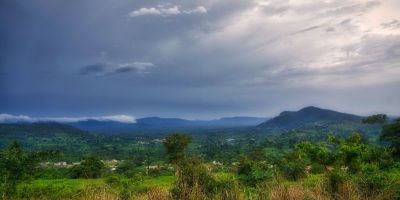News
Investment needed in African climate science
Africa needs long term investment in scientific infrastructure and science careers to allow the continent to adapt to climate change and its effect on weather systems.
Side effects of wide scale forestation could reduce carbon removal
The side effects of large-scale forestation initiatives could reduce the CO2 removal benefits by up to a third.
Southern Africa hosts first ‘testbed’ to improve early warning of thunderstorms
Leading weather scientists and practitioners from the UK, South Africa, Zambia and Mozambique have commenced a two-week “testbed” to improve early warnings for severe thunderstorms in Southern Africa.
£2m climate education expansion for England's young learners
Every school and college in England will have free access to expert support to become greener and more climate resilient in a national scheme backed by £2m of government funding.
Ensuring nutrition is at the heart of climate smart agriculture
Farmers in sub-Saharan Africa need to diversify away from growing maize and switch to crops that are resilient to climate change and supply key micronutrients for the population, say researchers.






